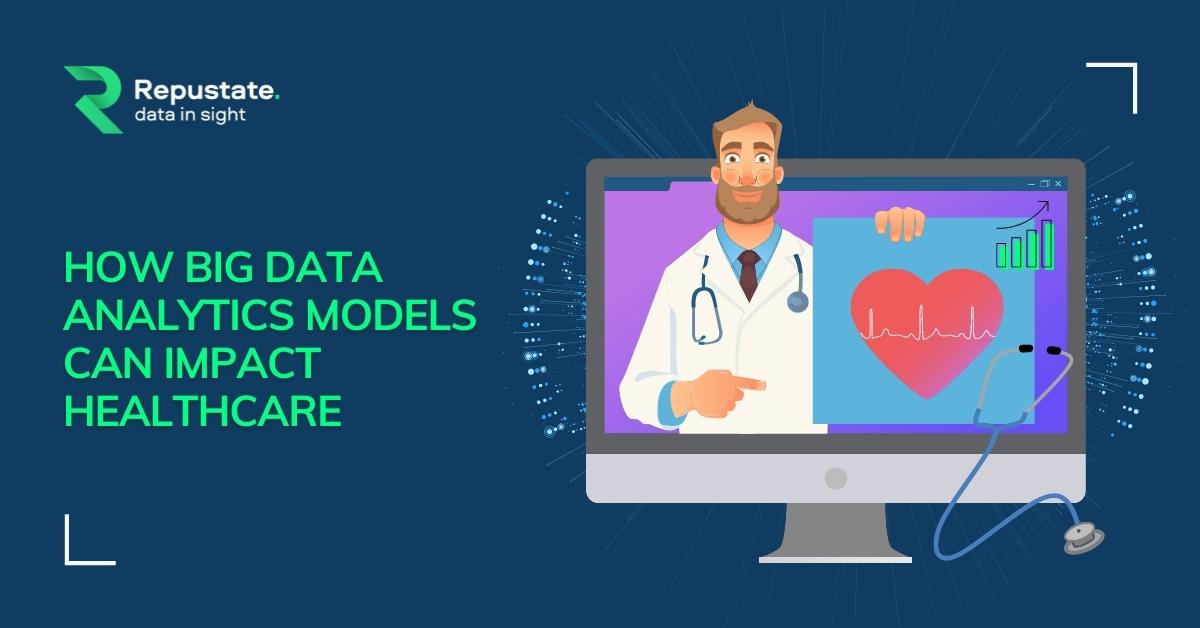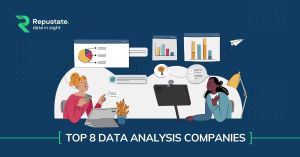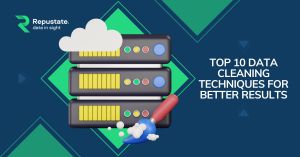How Big Data Analytics Models Can Impact Healthcare
Healthcare big data analytics can not only improve patient care and health outcomes, but it can help healthcare providers diagnose diseases faster and more accurately than ever before. It can also contribute significantly to bettering the overall patient experience. The COVID-19 pandemic has perfectly illustrated the significance of big data analytics in healthcare. It allowed healthcare organizations to properly allocate resources to ensure that every patient gets effective treatment and also allowed governments to formulate the strategies needed to curb the spread of the disease.
In this post, we’ll look in detail at how healthcare big data analytics models can improve and help the healthcare industry, and why it’s so important in 2022.
What Is Big Data Analytics in Healthcare?
Healthcare big data analytics is the process of gathering and analyzing vast amounts of raw, unstructured data to identify trends and patterns, make predictions, and gain insights from the data. Combined, data analytics allows organizations to make better data-driven decisions. Big data analytics in healthcare, therefore, involves processing patient data collected from a variety of sources. These include electronic health records (EMRs), diagnostic imaging systems, health monitoring equipment, laboratory results, health care provider notes, and more.
Gathering and analyzing healthcare data is critical because it allows healthcare providers to improve patient care, enhance preventative medicine, diagnose diseases quicker and more accurately, and provide patients with more personalized treatment. From a business point of view, data analytics can help organizations with the allocation of resources, lowering the costs of healthcare, and simplifying their operations.
What Is Patient Voice?
Big data analytics in healthcare doesn’t stop with analyzing patient data, though. It also allows health care facilities like hospitals, clinics, and doctor’s offices to analyze patient feedback or patient voice. For patient voice, healthcare providers typically gather data through post-appointment surveys, phone calls, in hospital questionnaires, feedback forms, or even social media feedback.
This gives them a wealth of patient feedback, opinions, and feelings they can analyze to understand how patients truly feel about their level of service. In simple terms, analyzing this data gives them the ability to gain valuable insights into where they’re performing well and where their processes might need to be improved. In turn, healthcare organizations can improve their processes for a better patient experience.
It’s important to remember, however, that health care providers and facilities can only access healthcare big data analytics insights if they use the right tools. This is simply because it’s challenging to convert unstructured patient feedback data into information that is analytical and actionable.
Sentiment analysis & NLP
This is where sentiment analysis in healthcare comes in. It uses natural language processing (NLP) and text analysis to identify patient sentiment and opinions from feedback. In other words, it goes a step further than traditional surveys or other feedback methods.
Sentiment analysis therefore gives healthcare companies the ability to know how patients feel, which, in turn, allows them to make better decisions, drive better health outcomes and create better patient experiences.
Discover More: NLP in Healthcare
Why Is the Big Data Analytics Model Important?
Let’s consider some of the reasons why big data analytics is important in healthcare in more detail. These include:
- Better decision making
With vast amounts of data to be analyzed and gain insights from, healthcare big data analytics allows healthcare providers and facilities to make better decisions whether it relates to patient care or facilities management. A perfect example of this is the COVID-19 pandemic. Here, big data analytics allowed organizations in the healthcare industry to use data to not only understand, but also shape the best strategies to respond to the pandemic. As a result, they could simulate the spread of the disease and implement measures to curb its spread. They could also track hospital and resource availability to accurately predict staffing needs.
- Improved diagnostics
Through the use of big data analytics in healthcare, healthcare providers are able to diagnose diseases quicker and more accurately than before. For instance, algorithms are able to provide the most likely diagnoses based on the patient data physicians collect from their patients. These algorithms are also able to suggest the most proper tests to confirm the diagnoses which, in turn, eliminates unnecessary testing.
- Improved treatment outcomes
By gathering and analyzing data on diseases and their treatments, healthcare providers can now identify trends and patterns in the data to determine which treatments are most likely to be successful for a specific disease. In turn, this improves treatment outcomes which is especially important in the case of serious diseases like cancer, multiple sclerosis, and others.
- Enhanced patient experiences
Patient voice also helps healthcare to ensure better patient experiences. This is also crucial in the treatment of patients. It’s proven that better patient experiences lead to better health outcomes. For example, a study among heart attack patients showed that those patients who had more positive experiences, had better outcomes a year after their discharge from hospital.
- Real-time monitoring
In recent years, Internet of Things (IoT) devices have become increasingly popular in healthcare settings. This is simply because they enable healthcare providers to remotely monitor their patients’ vital health metrics in real time. As a result, patients don’t need to travel to a clinic or hospital to receive proper care. An added benefit of these devices is that they gather vast amounts of data which can then be used in research or help doctors diagnose and treat diseases better.
- Preventative care
When analyzing massive amounts of data, healthcare big data analytics give healthcare providers the ability to prevent diseases. For example, through the use of healthcare data analytics, healthcare providers can identify the warning signs of a serious illness like diabetes much earlier than before. In addition, big data analytics can help healthcare providers diagnose disease better from medical imaging by being able to identify patterns in these images.
- Facilities management
For healthcare facilities like clinics and hospitals, big data is the key to improve their operations and reduce costs. By using big data analytics in healthcare, these facilities can accurately predict, plan, and allocate resources according to the required demand. It also gives them the ability to improve the skills and knowledge of their workforce by using data analytics to track and identify those employees who need supplemental support and training.
- Increased efficiency
When healthcare facilities are able to identify inefficiencies in their processes, they’re able to improve these processes to eliminate any inefficiencies. Also, when patients are treated better, quicker, and more effectively, they can be released earlier, which, in turn, allows facilities to improve healthcare efficiency even further.
- Decrease costs
Healthcare big data analytics can help hospitals and clinics significantly reduce costs through not only operational efficiencies but also reducing readmissions, misdiagnosis, adverse drug effects, etc. all of which can lead to a healthcare organization shelling out money to manage the situation when it could be easily avoided.
Repustate For Patient Voice
Repustate’s multilingual sentiment analysis API for healthcare big data analytics has played an important role in improving the standard of patient care and healthcare delivery by helping healthcare organizations allocate necessary medical resources where required, formulating strategies for disease management.
 Home
Home
 Nov 12, 2021
Nov 12, 2021

 Jeremy Wemple
Jeremy Wemple
 Dr. Ayman Abdelazem
Dr. Ayman Abdelazem
 Dr. Salah Alnajem, PhD
Dr. Salah Alnajem, PhD
 David Allen
David Allen

 Repustate Team
Repustate Team

